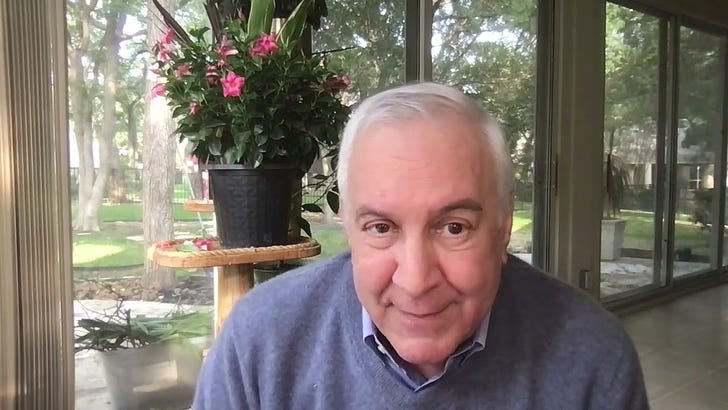I want to first say thank you to all who have made it a habit of reading what’s been presented on “The Ticker”. You’ve made me happy; you’ve also made me understand that “we’ve only just begun”.
With that in mind we’re embarking on our own “learning curve”. With 55+ years of real world experience trust me, it’s not easy to decide what to present next. It’s even more difficult to determine how best to present it. That’s further complicated by the sheer number of tools that are available in today’s “electronic” world to take “what’s in my head” and bring it to you. Rome wasn’t built in a day and putting together the best format to bring “The Ticker EDU” to the airwaves isn’t going to simply happen overnight. Like everything we do in life it’s best to start and let you, our market, tell us what you want. Speak up; we’ll listen.
In addition, somme time was taken to do a little Camtasia / YouTube magic. Honestly it’s like learning a whole new language but so far so good.
Regardless of what type of investor or trader you are, day, scalp, swing or position, you’ll quickly understand that “it’s all in your head”, literally “right between your ears”. With that in mind let’s start what will become a regular Saturday feature of “The Ticker” with one of my favorites, “Trading Psychology”. There’s a lot to cover here so we’ve broken the actual presentation of the course up into several segments:
Trading Psychology Segments
● Emotional Intelligence
● Negative Emotions
● Positive Emotions
● Self Confidence
● You’re Going To Lose
● Make It Real
● Know Yourself
Let’s start with an important one, Emotional Intelligence. Emotional intelligence (EI) is the ability to recognize, understand and manage one's emotions. It’s equally critical to recognize, understand and manage the emotions of others. This is a skill set that allows individuals to navigate social interactions effectively but more importantly to make sound decisions in their professional and personal contexts. The best advice available starts with the space between your ears; your intrinsic emotions, how they are understood and handled. Handling your emotions makes the difference between success and failure as an investor or trader. As they relate to Emotional intelligence a few areas of concentration are:
● Understand your own personal psychological barriers
● Examine why some traders make bad decisions
● Reinforce the importance of developing a trading plan
Basic EI includes several different components:
● Self Awareness: Being aware of one's emotions and how they affect behavior
● Self Regulation: Being able to control and manage one's own emotions
● Motivation: Being driven to achieve one's personal and trading goals
● Empathy: Being able to understand and respond to the emotions of others
● Social Skills: Being able to build and maintain positive relationships
Emotional intelligence is critical in many different contexts including, but not limited to your (1) personal relationships, (2) the workplace and in your (3) decision-making process. Individuals with high emotional intelligence tend to be more successful in their own personal and professional lives. They also tend to have better mental and physical health outcomes. There are various ways to develop emotional intelligence such as self-reflection, learning from experience, practicing empathy and listening. Professional development programs, coaching, mentoring and therapy can help in improving one's emotional intelligence. It is particularly beneficial for traders to have control of their emotions from the start. Quite frankly it’s imperative.
Before you trade, recognize that humans seek pleasure; we’re emotional beings first and foremost, accept it and benefit from the knowledge gained. Remember also that being human means you cannot escape fear and fear influences all of our psyches and how we act. If your fear of losing money overcomes your rational self you may find it difficult to think of anything else. Most humans behave irrationally, especially when it comes to taking profits and losses, especially losses. “If you can’t stand the heat, get out of the kitchen” is not a good adage for handling lack of confidence and self-doubt. Take time to understand what’s happening between your ears; enjoy the adventure. It is important to have faith in yourself first before you start to trade.
Well what do you think? The first of many segments of “Trading Psychology” is “in the books”. Saturdays seem to be the best days to provide informative commentary of this nature to you. There’s much more to come from The Ticker EDU. Stay tuned and as always, let me know what you want to learn; I listen.
Hope you enjoyed this post. I’m just a young 68 years old; my Dad became a broker when I was 13. It’s time for me to ‘give back’ to all of you what’s in my head. It’s not always pretty but it’s based on history . . . and history, unchecked, repeats itself.
Everyone learns at their own pace. If you pick everything up the first time through, great but if not email me at david@thetickeredu.com so we can further help. Thanks again go out to Danny www.mrtopstep.com . . . check him out; he’s worth your “click” and thanks to all of you who have adopted what is being presented; we’re humbled by the response and referrals.
See you all Sunday night when I look at “The Week That Was & What’s Next”. I’ll be introducing “The Ticker EDU”, a new venture I’ve put together to give back years of experience to those interested in learning. As a serial entrepreneur it’s refreshing to embark on yet another venture this late in life but what the hell, it’s fun. Again, let me know what you want to learn, I’m all ears.
As the Carpenters put into words, “We’ve Only Just Begun” . . . thanks again for the start . . .



